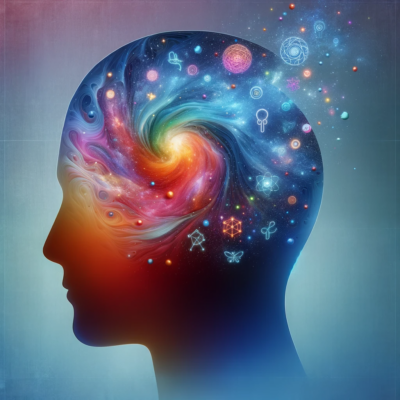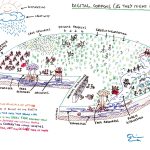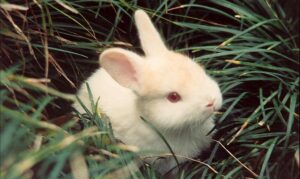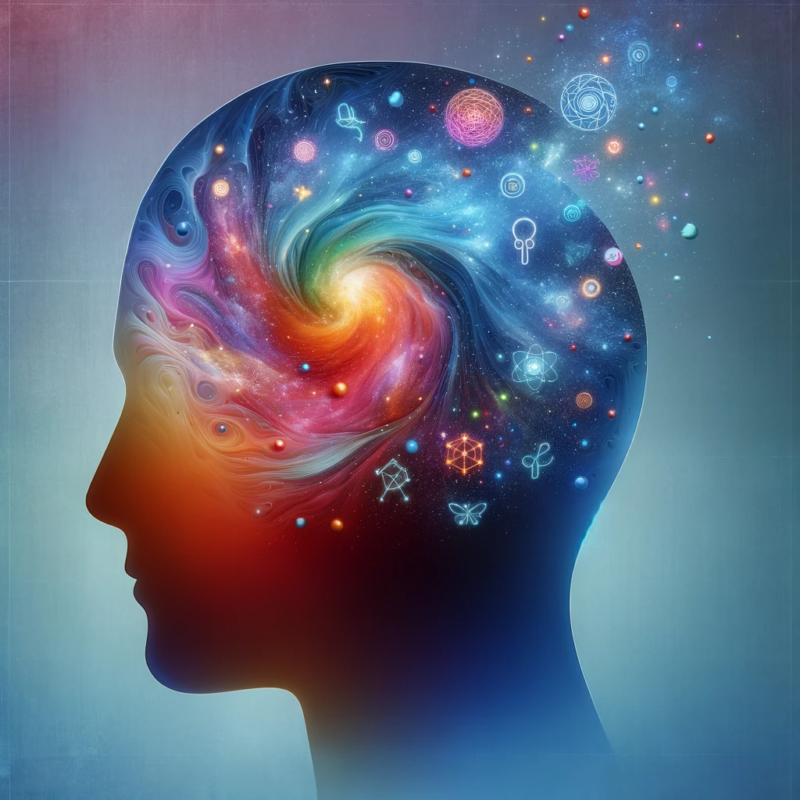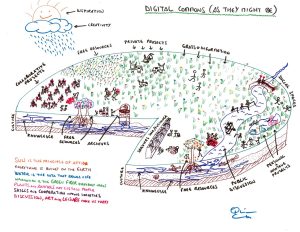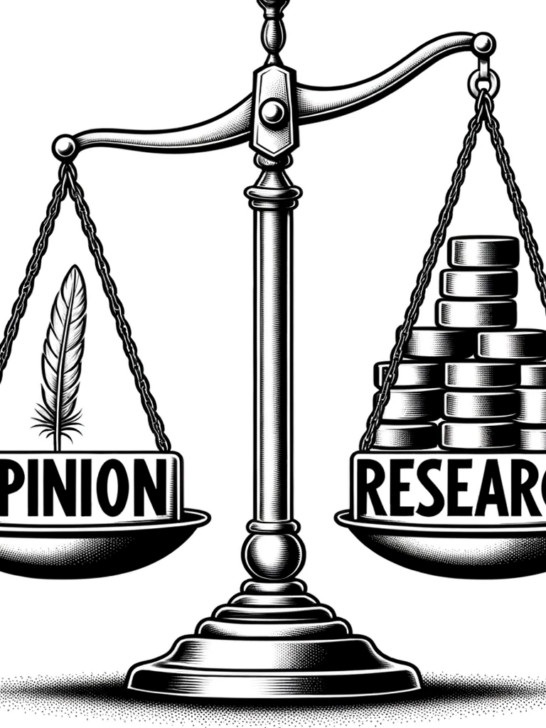What is Invention?
Invention is the act of creation. In it’s most pure form, invention refers to the moments when you create something novel, something that has never existed before.
Invention may also refer to
- any act that results in the creation of an artifact, insight, story, product, application, service
- the act of creating something novel
- a new poem or story, the printing press, photography, the internet, the iPhone
- a major stage in the writing process
- one of the five canons of rhetoric (along with Invention, Arrangement, Style, Memory, Delivery)
- a socio, cultural, rhetorical construct
- an intuitive, prelinguistic construct
- a measure, a metric, of originality, uniqueness, creativity
Related Concepts: Believing Game; Composing; Customer Discovery; Growth Mindset; Openness; Prewriting
Invention: 6 Definitions of Invention
See below for a summary of 6 definitions of invention. This review of literature on invention is largely informed by qualitative research (e.g., interviews, case studies, ethnographies) and self-reports by writers.
1. Invention May Refer to Any Act of Creation



Most broadly, invention refers to acts of creation.
People are creative. They enjoy telling stories and collaborating with others to develop new artifacts, ideas, knowledge claims, products, applications, and services. As humans, as homo sapiens, we are hardwired to invent. Since emerging from the Savannah Plain several hundred thousand years ago, we have been driven to solve problems and to advance human knowledge. On a personal level and a social level, we love to solve whatever problems we come across. We have an urge to build and to collaborate with others.
“Invention is at the heart of writing; because composing entails invention, it is considered an epistemological practice—that is, a practice through which one makes knowledge.”
NCTE 2012
2. Invention May Refer to the Act of Creating Something Novel
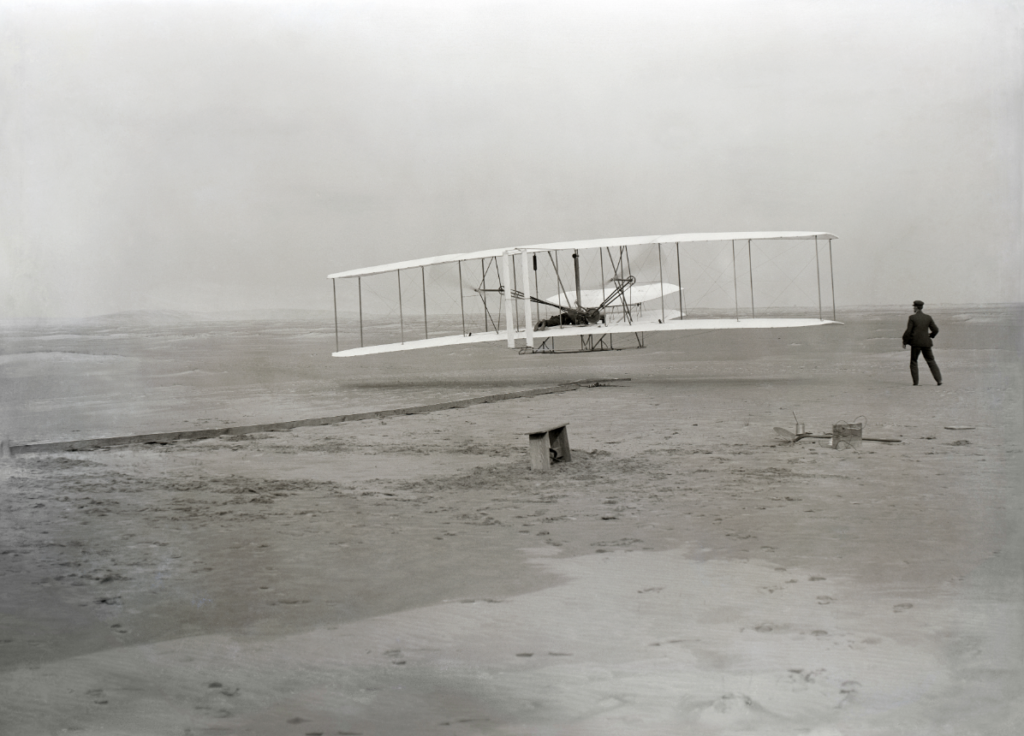


The term invention may be reserved for the act of creating “works” that are novel–that is, works that have never been imagined before. Here the term works is interpreted broadly: works include artifacts, ideas, knowledge claims, products, applications, and services
In turn, a story, novel, or work of nonfiction work may be described as an act of invention (i.e., inventive) so long as the text is not derivative–i.e., a replay of past stories that seems trite.
3. Invention Refers to a Stage of the Writing Process
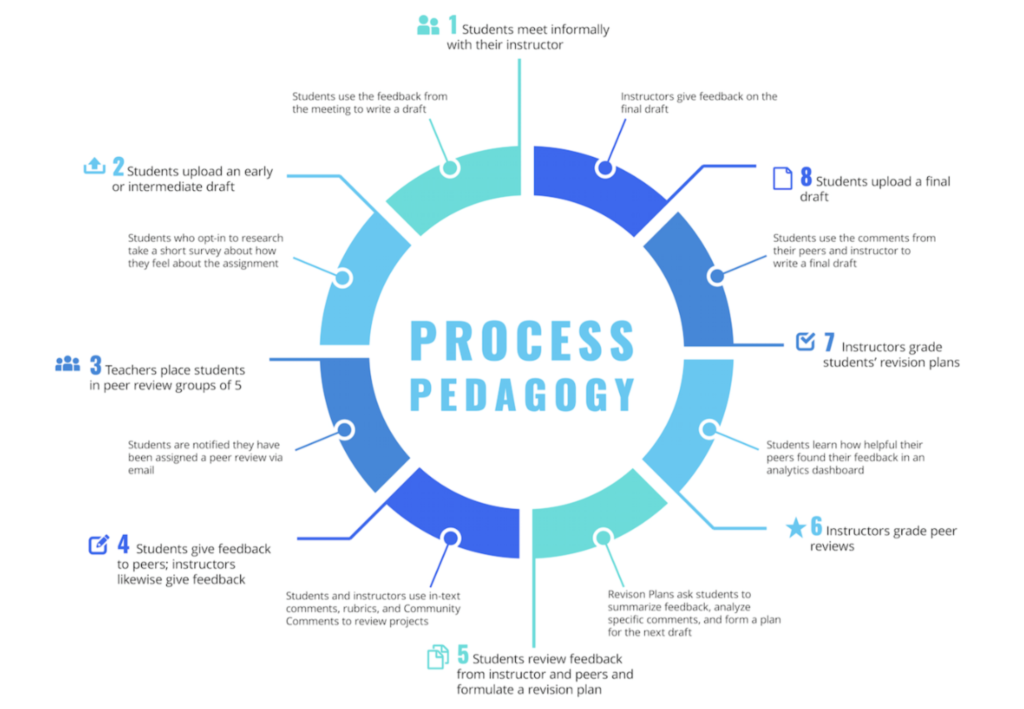


In its simplest form, the writing process is presumed to have four major stages:
- prewriting
- writing (which may be called drafting or composing)
- revising
- editing.
In this simplified model of composing, invention is presumed to precede writing. During the invention process, writers are advised to
- engage in audience analysis, rhetorical analysis, and rhetorical reasoning to understand the target audience’s expectations (e.g., style of writing, citation style, register, diction)
- review the canon and engage in strategic searching so you understand what is known about a topic and what researchers are currently debating and exploring.
If that depiction of invention and the writing process seems too detached, or too mechanical to you, then you’re not alone. In practice, in fact, for many writers the act of composing is itself an act of invention. For some people there is no prewriting/invention/planning stage. Rather, some writers rely on the generative process of the writing process to discover what they they think, where the gaps are in knowledge on a particular scholarly conversation, and what they want to say.
For example, if the subject is near and dear to you, you may just begin drafting immediately, accessing what you already know about a topic. You may reserve textual research and empirical research for especially challenging rhetorical situations.
Beyond finding the writing process to be messier, more recursive, than suggested by the four stage model, some writers — and this may depend on the genre of writing they are working in — prefer to follow their intuition–their felt sense.
4. Invention Refers to one of the Five Canons of Rhetoric
For Aristotle, Inventio (invention) refers to one of the five canons of rhetoric (along with Invention, Arrangement, Style, Memory, Delivery). Aristotle conceptualized invention as the process of “discovering the best available means of persuasion.”
In the classical tradition, rhetoricians such as Aristotle, Cicero, and Quintilian imagined invention to be a cognitive, intellectual process that helped rhetors analyze the truth of things. Prior to speechmaking or writing, rhetors were advised to explore commonplace assumptions about the topic and to ask questions about the status quo–to explore what was known or what was presumed to be true. To aid this process, classical rhetoricians developed a number of heuristics–structured approaches to asking questions about a topic. Hermagoras proposed four critical perspectives to discover “the best available means of persuasion” on a matter.
Stasis Theory
- Facts or Conjecture
- What exists? What is real? What is value?
- What are the facts?
- Definition
- Defining problems is a genre of discourse, a reoccurring rhetorical situation. People write about problems in order to understand their constituent parts, causes, and effects. In our daily lives, and certainly as part of our professional careers, we engage in defining problems. This is often perceived as the first step in problem solving. You cannot solve a problem if you don’t understand it.
- Quality or Significance
- Is it a good problem? a bad problem? How severe? How important is the issue?
- What happens if the problem isn’t solved?
- Policy
- What actions should be taken to resolve or alleviate the matter?
5. Invention a Socio-Cultural-Rhetorical Construct
Invention is informed by
- social and cultural expectations and norms
- the rhetorical situation
In academic communities, invention is often referred to as a “Social, Cultural, Rhetorical Construct.” In other words, the act of invention is informed by
- Social & Cultural Norms
These are the shared expectations, professional standards of conduct, and laws members of a society share regarding appropriate - Rhetorical Situation
6. Invention May Be Experienced in the Body as a Form of Felt Sense or Inner Speech
Felt Sense
Gendlin, an American philosopher, describes felt sense as “the soft underbelly of thought . . . a kind of bodily awareness that . . . can be used as a tool . . . a bodily awareness that . . . encompasses everything you feel and know about a given subject at a given time . . . It is felt in the body, yet it has meanings. It is body and mind before they are split apart” (Gendlin 1978).
Interviews of writers at work — such as The Paris Review Interviews — illustrate that many people experience the act of invention deep within their bodies. Some writers speak of having a dialogue with themselves as they compose. Fiction writers speak of their characters coming alive and telling them what they do.
“In out-of-the-way places of the heart, Where your thoughts never think to wander, This beginning has been quietly forming, Waiting until you were ready to emerge”
John O’Donohue
Inner Speech
Lev Vygotsky (1967), a developmental psychologist working in the 1930s, theorized that thought finds form in language. Over time, as babies learn language, they move from crying and pointing to what they want to communicating it. According to this perspective, language becomes abbreviated, condensed, saturated with personal meaning, and goes “underground” as it becomes the voice we hear in the back of our heads–the voice of “inner speech”
FAQs
What is an Invention?
Invention is an umbrella term: Invention may refer to the act of creating something novel, something that has never existed before. Or, invention may refer to solving problems in your day-to-day life. And in school and work settings, invention may refer to a stage in the writing process.
What is the difference between prewriting and invention?
Prewriting and Invention are overlapping concepts: In the classical rhetoric, the rhetor was presumed to be embedded in a particular situation where a call to write has been pitched: an exigency, a problem has arisen. In this scenario, the rhetor’s next move is to find the available modes of persuasion.
Prewriting, however, presupposes a different situation: During prewriting, the rhetor isn’t so much looking for the available means of persuasion as they are looking to educate themselves about a topic and to come up with a plan for composing a work.





